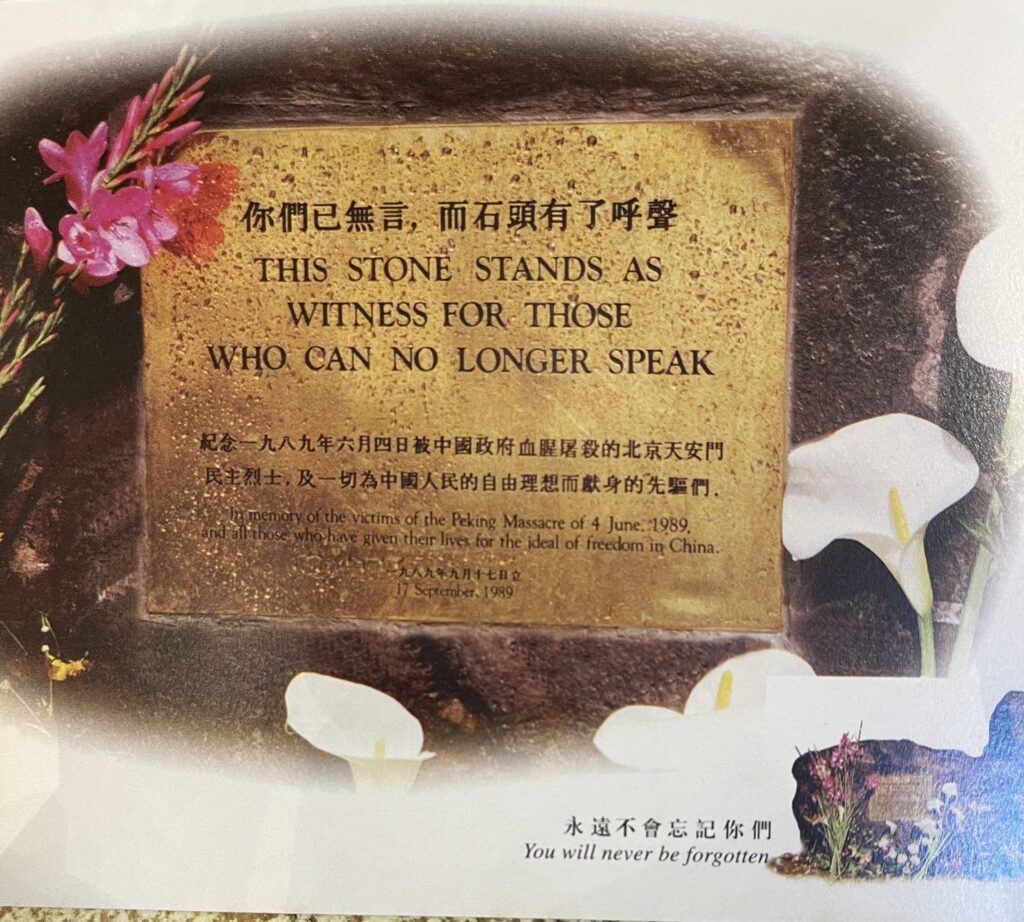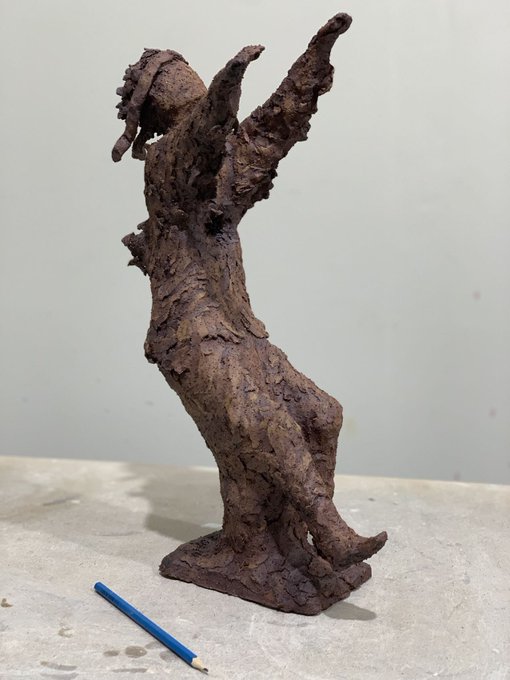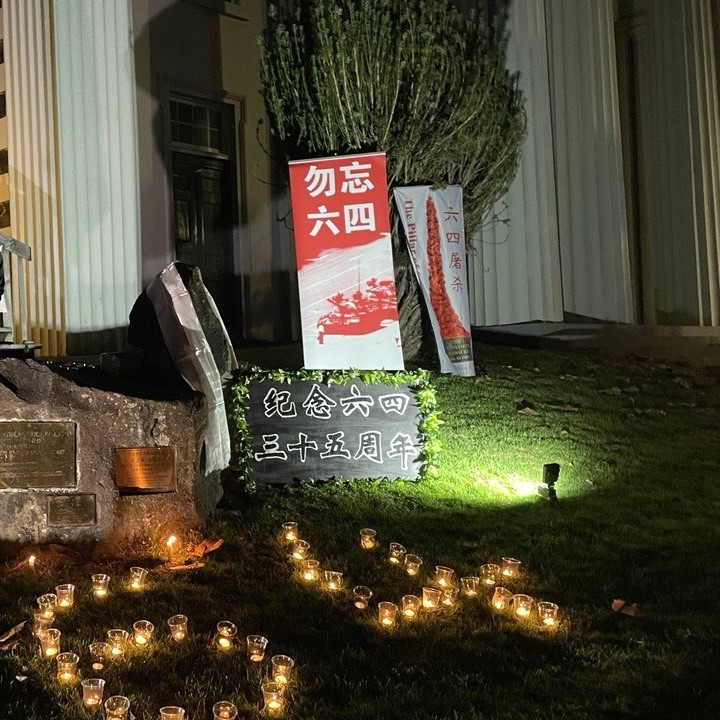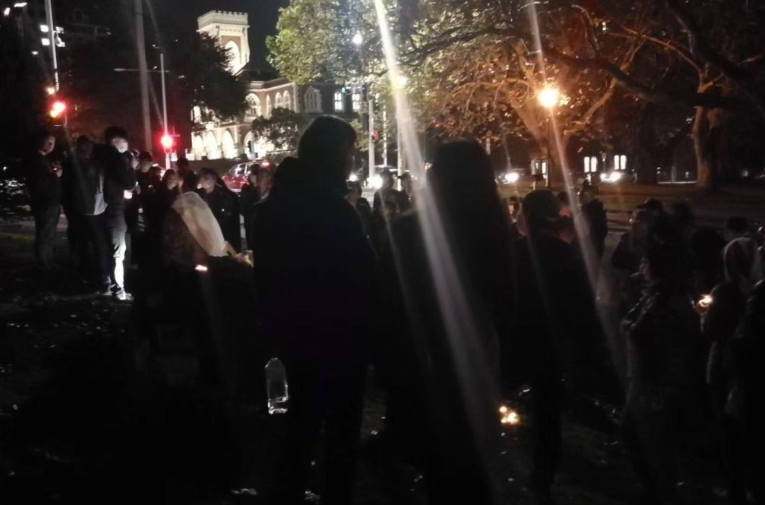Courage and Resilience: New Zealand’s Chinese Community calls for upholding democracy and freedom
By Portia Mao
“This stone stands as witness for those who can no longer speak” read the inscription on a rain-sprinkled memorial plaque, as a small crowd gathered for a candlelit vigil on June 3rd in Auckland.
–

–
Its words pay tribute to the victims of China’s violent crackdown on members of the pro-democracy movement involved in protests across the country, on June 4 1989, most notoriously in and around Beijing’s Tiananmen square.
On the evening of June 3, 2024, members of the Chinese-New Zealand community gathered to commemorate the event happened 35 years ago, with some participants being direct witnesses to the state-led massacre of demonstrators.
They have a clear message: be wary of the CCP‘s influence and guard our democracy.
Mr. D* personally experienced the Beijing pro-democracy movement in 1989. A journalist at the time, he siad that on the morning of June 4, he witnessed a couple on a bicycle being shot by Chinese soldiers. He also saw an injured university student being lifted onto a passing tricycle. The tricycle was not big enough for the injured young man, so his companion held the injured man’s legs and accompanied the victim, all the way running to the hospital
“I will never forget this scene for the rest of my life” Mr. D reflected.
–

(A sculpture made by Mr. D, depicting the moment when a protester was shot by Chinese forces during the 1989 crackdown. Photo: Mr.D )
–
The Chinese government’s crackdown on the Tiananmen pro-democracy movement in 1989 was a watershed moment in contemporary Chinese politics. 35 years later, many overseas Chinese still fear the reach of the Chinese Communist regime, even in New Zealand. They are unwilling to openly express their support for Chinese democracy or to criticise the Chinese government. They fear retaliation, worry about the impact on their business dealings with China, or are concerned about encountering trouble when going back to China to visit their family members.
An acquaintance of mine, a Chinese Kiwi, told me that he wished to be able to participate in the June 4th candlelight memorial, but considering he needs to visit China in the second half of the year, he had to give up: he feared that it could have dire consequences if the watchful eyes of the state abroad identified him.
But not all are willing to remain silent. At this year’s June 4th candlelight vigil, speakers focused on overcoming fear and confronting the threats posed by extreme Chinese nationalists and CCP’s followers in New Zealand.
–

(candlelight vigil in 2024 / photo: Portia Mao)
–
On the evening of June 3, in front of the June 4th memorial plaque at St. Andrew’s Church in central Auckland, a middle-aged Chinese man openly encouraged the candle-holding audience to “take a step forward for democracy and freedom as much as possible within a safe range.”
Mr. Y*, who graduated from the University of Auckland some years ago, said, “If everyone takes a small step, together it will become a great stride for democracy and freedom.” His words were met with warm applause.
More young people stood up to speak at this year’s June 4th candlelight vigil. They came from China and were not yet born when the Tiananmen Massacre occurred in 1989.
Ben, a young man who had been to New Zealand, made his first public speech. Ben told the audience that while in China, he would rather tell his parents about his homosexuality ,which is considered highly taboo in China, than reveal his pro-democracy stance for fear that his parents would worry about his security.
Earlier this year, Ben participated in the “Pride Parade.” When Ben held a rainbow flag and openly shared his sexual orientation for the first time, he felt the importance of living authentically and embracing his true self. This moment of self-realization inspired him to speak publicly about his political beliefs during the candlelight memorial, marking a significant turning point in his life.
“Once you step into the light and embrace your true self, you’ll never want to hide in the shadows like before,” Ben said.
Ben finished his speech by strengthening his political position: “I do not support the dictatorship of the Communist regime. I do not support China’s military action against Taiwan. I do not support the CCP’s infiltration of democratic countries.”
Notably, several young speakers at this year’s candlelight memorial called for the preservation of New Zealand’s democracy.
In his speech, a young photographer said he had applied for a job at a local Chinese-language media outlet. The person in charge of recruitment proudly told him that their newspaper had a “close relationship with the People’s Daily” (the official newspaper of the Central Committee of the Chinese Communist Party), which he found repulsive. The photographer with a big camera urged the audience to “protect New Zealand, protect our new home.”
In New Zealand’s Chinese community, there is a faction of extreme nationalists from mainland China, spanning various age groups, known as “old pinks” or “little pinks.” Some of these individuals are known for their hostility, frequently launching aggressive attacks on fellow Chinese who support New Zealand’s democratic values. They target these individuals both online and in public, using provocation and insults whenever such values are expressed.
On June 3, the organizers of the 35th anniversary of Tiananmen pro-democracy movement held a photo exhibition in Auckland’s Aotea Square. A young Chinese man, most probably an international student from China, questioned the staff on site: “Germans could be forgiven for killing Jews. Why do you guys keep talking about this after so many years?”
At the candlelight memorial, another Chinese young man, an international student from China, spoke about the need to confront the “little pinks.”
He stated, “Since the ‘little pinks’ are present here, we must assert our political stance. We must not be afraid; in fact, we cannot afford to be afraid. We must publicly counter their behavior. Only then can we make them aware of our presence and help them understand that the CCP does not represent all Chinese people.”
Simon O’Connor, former National Party MP and co-chair of the New Zealand branch of the Inter-Parliamentary Alliance on China, highly praised the Chinese attendees “for echoing the spirit of Tiananmen Square” and “responding to the cries for freedom and democracy from years ago.”
Simon O’Connor attended the candlelight memorial event on the evening of June 3rd. In his speech, he said: “The Chinese Communist Party still fears people discussing democracy. Your presence here tonight is remarkable.”
For some years, Simon O’Connor has been seen and heard at every June 4th anniversary candlelight vigil. Among New Zealand politicians, Simon is the most steadfast supporter of the Chinese democracy movement.
Sadly, Simon O’Connor is not a member of parliament after the last election. His absence from parliament is a loss for Chinese democracy supporters as they lose one of the remaining outspoken supporters of their cause in the parliament house. It is worth noting that although there are three Chinese MPs in parliament, none of them attended “the event commemorating the Chinese democratic movement. This absence is particularly striking given that they themselves are products of democratic politics.
Fortunately, in recent years, young people within the New Zealand Chinese community have emerged who are brave enough to express their political views publicly. At last year’s June 4th candlelight memorial event, two Chinese international students courageously delivered speeches expressing their support for democracy and opposition to dictatorship.
In recent years, a new wave of young voices in New Zealand’s Chinese community has emerged, boldly expressing their political views. At last year’s June 4th candlelight memorial, two Chinese international students made remarkable speeches in support of democracy and in opposition to dictatorship.
They were aged just 17 and 14.

(candlelight vigil in 2020 / Portia Mao)
*Interviewee’s names have been anonymised at their request




